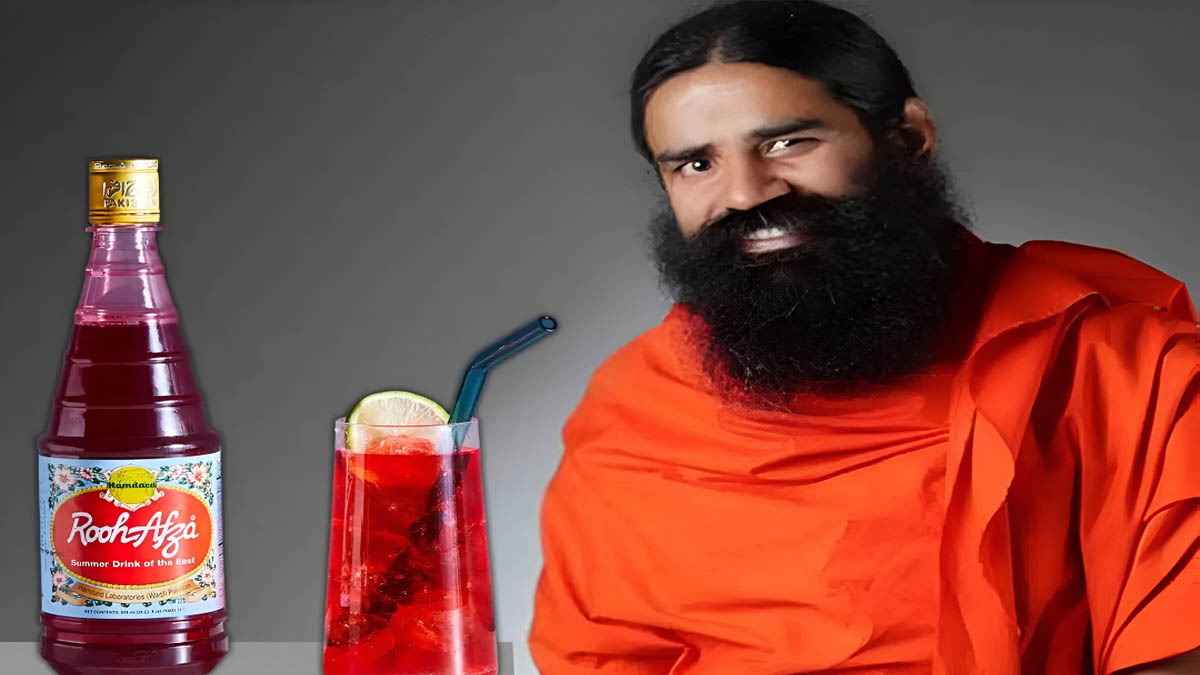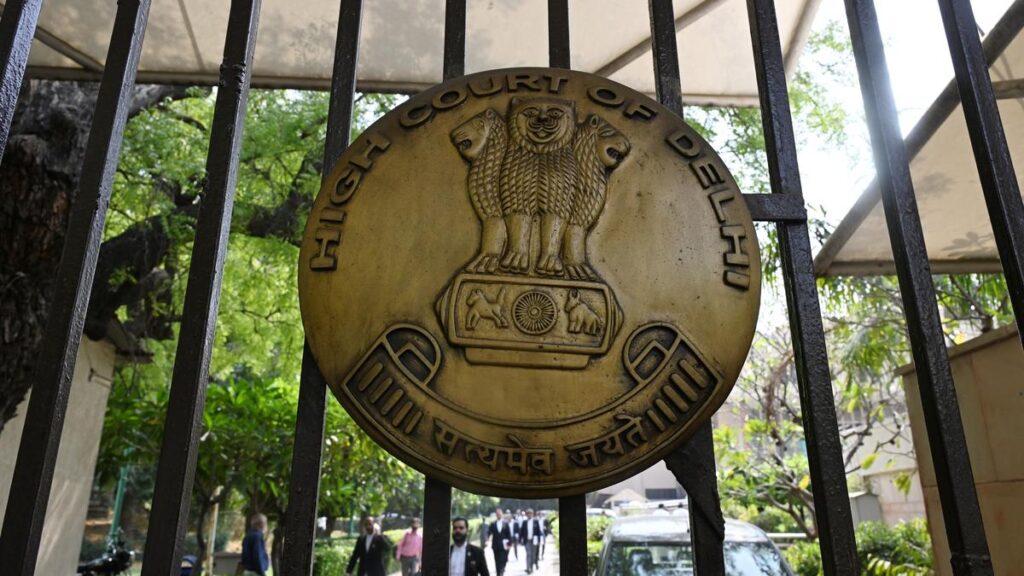Now Reading: High Court Condemns Ramdev’s “Sharbat Jihad” Claims in New Rooh Afza Video
-
01
High Court Condemns Ramdev’s “Sharbat Jihad” Claims in New Rooh Afza Video
High Court Condemns Ramdev’s “Sharbat Jihad” Claims in New Rooh Afza Video

The Delhi High Court on Thursday severely criticized Yoga guru Ramdev, stating that he “lives in his own world” and appears to be beyond anyone’s control. This strong rebuke came after the court was informed that Ramdev had released another video containing disparaging remarks against Hamdard National Foundation India’s popular drink, Rooh Afza, seemingly defying the court’s previous orders.
Justice Amit Bansal, presiding over the case, expressed his dismay, stating that Ramdev’s conduct demonstrated a clear disregard for the court’s directives. The court had earlier explicitly barred Ramdev from making any further public comments, advertisements, or videos targeting Hamdard or its flagship product.
“In view of the last order, his affidavit as well as this video are prima facie in contempt. I will issue a contempt notice now. We are just calling him here,” Justice Bansal stated firmly.
The legal battle originated from statements made by Ramdev earlier this month while promoting Patanjali’s “Gulab Sharbat.” In these remarks, he alleged that the revenue generated from the sales of Hamdard’s Rooh Afza was being used to fund the construction of madrasas and mosques. These comments, which some have labeled as “sharbat jihad,” sparked widespread outrage and prompted Hamdard to seek legal intervention.
During a hearing on April 22, the High Court had strongly condemned Ramdev’s statements, observing that they “shocked the conscience of the court” and were “indefensible.” The bench had cautioned Ramdev’s legal team that stringent action would follow if immediate corrective measures were not taken. In response, Ramdev assured the court that all related online content, including advertisements and social media posts, would be promptly removed. Following the court’s admonition, Ramdev’s counsel submitted a written undertaking, pledging that he would refrain from making similar comments in the future and would remove the objectionable content.
However, during Thursday’s proceedings, Hamdard’s legal team presented evidence suggesting that Ramdev had once again released a video containing similar objectionable content, despite his previous undertaking and the court’s clear orders. Senior advocates Mukul Rohatgi and Sandeep Sethi, representing Hamdard, argued that the new video was a blatant violation of the court’s earlier directive and constituted deliberate contempt of court.
“This amounts to hate speech. He says it is a sharbat jihad. He should carry on his business. Why is he troubling us?” Mr. Rohatgi questioned. Mr. Sethi further alleged that Ramdev’s comments targeted the religious identity of Hamdard’s founders and should not be protected under the guise of the right to expression.
Justice Bansal, visibly displeased, remarked, “He (Ramdev) is not in control of anyone. He lives in his own world.”
Ramdev’s counsel requested the court to defer the hearing due to the unavailability of the arguing counsel. The court subsequently adjourned the hearing for a brief period.
This latest development underscores the ongoing tension between Ramdev’s Patanjali group and Hamdard, the manufacturer of the iconic Rooh Afza, a herbal drink with a history dating back to 1906. Rooh Afza, known for its cooling properties and association with the month of Ramadan, has been a popular household name across the Indian subcontinent for generations. Its original formulation includes a blend of herbs, fruits, vegetables, and flowers, and it is traditionally used to prepare sharbats, cold milk drinks, and desserts.
The High Court’s strong stance reflects the seriousness with which it views the alleged violation of its orders and the potential for Ramdev’s statements to incite communal disharmony. The court’s observation that Ramdev seems to operate without any constraints suggests a growing concern over his repeated controversial remarks, particularly those with religious undertones. The issuance of a contempt notice could potentially lead to further legal repercussions for the yoga guru.










